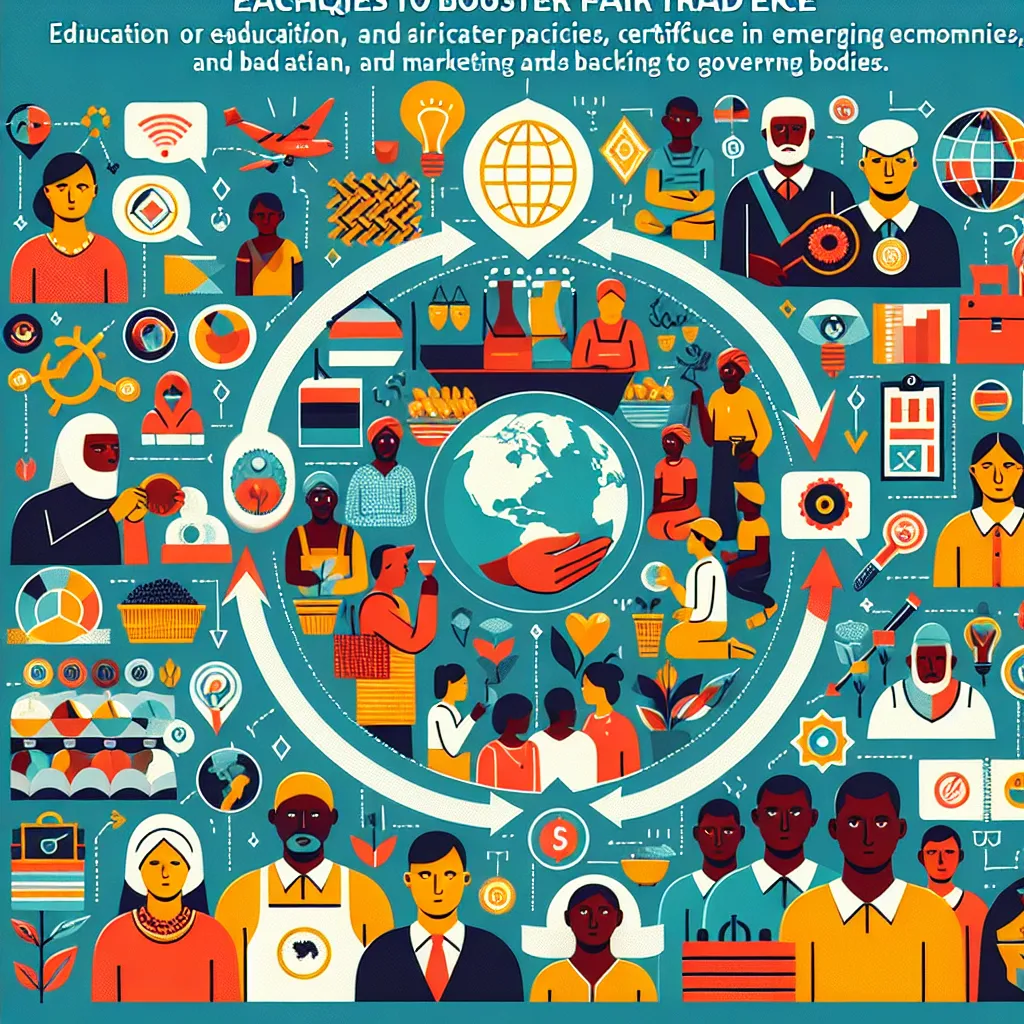Fair trade promotion in developing countries is a topic that has gained significant attention in recent IELTS exams. Based on the analysis of past papers and current trends, it’s highly likely that this theme will continue to appear in future tests. Let’s explore a relevant question and provide sample essays to help you prepare for this important subject.
Nội dung bài viết
 Fair Trade Promotion Strategies
Fair Trade Promotion Strategies
Analyzing the Question
Let’s examine a question that could potentially appear in an IELTS Writing Task 2:
Some people believe that promoting fair trade is the best way to help farmers in developing countries. To what extent do you agree or disagree with this statement?
This question requires you to express your opinion on whether promoting fair trade is the most effective method to support farmers in developing countries. You need to consider the advantages and potential limitations of fair trade, as well as other possible approaches to assist farmers.
Sample Essay 1 (Band 8-9)
Fair trade has emerged as a popular strategy to support farmers in developing nations, and while I largely agree that it offers significant benefits, I believe it should be part of a more comprehensive approach to rural development.
Fair trade undoubtedly provides several advantages to farmers in developing countries. Firstly, it ensures a minimum price for their produce, protecting them from market fluctuations and providing a more stable income. Secondly, fair trade often involves direct partnerships between producers and buyers, eliminating exploitative middlemen. Moreover, fair trade certification typically requires adherence to environmental and labor standards, promoting sustainable farming practices and better working conditions.
However, promoting fair trade alone may not be sufficient to address all the challenges faced by farmers in developing nations. One limitation is that fair trade primarily benefits those producing export crops, leaving out subsistence farmers or those focusing on local markets. Additionally, the certification process can be costly and complex, potentially excluding smaller producers who cannot afford the fees or meet the stringent requirements.
To truly help farmers in developing countries, a multifaceted approach is necessary. This could include investing in rural infrastructure, providing access to education and healthcare, and implementing policies that support smallholder agriculture. For instance, improving transportation networks can help farmers reach markets more easily, while better education can equip them with the skills to diversify their income sources.
In conclusion, while promoting fair trade is undoubtedly beneficial, it should be viewed as one component of a broader strategy to support farmers in developing nations. By combining fair trade initiatives with other development efforts, we can create a more comprehensive and effective approach to improving the lives of rural communities in these countries.
(Word count: 277)
Sample Essay 2 (Band 6-7)
Fair trade is often seen as a good way to help farmers in poor countries. I mostly agree with this idea, but I think there are other important things to consider too.
Fair trade has many benefits for farmers in developing countries. It gives them a better price for their crops, which means they can earn more money. This is important because many farmers are very poor. Fair trade also helps farmers learn better farming methods that are good for the environment. This can help them grow more food and protect their land for the future.
However, fair trade is not perfect and cannot solve all problems. One issue is that not all farmers can join fair trade programs. Sometimes it costs money to get certified, and small farmers might not be able to afford it. Also, fair trade mainly helps farmers who grow things like coffee or bananas for export. It doesn’t help farmers who grow food just for their local area.
I think we need to do more than just promote fair trade to really help farmers. For example, governments should build better roads so farmers can take their crops to markets more easily. They should also provide better schools in rural areas so farmers’ children can get a good education. Another important thing is to give farmers access to loans so they can buy seeds and equipment.
In conclusion, I believe that fair trade is a good way to help farmers in developing countries, but it’s not the only solution. We need to combine fair trade with other kinds of support to make sure all farmers can benefit and improve their lives.
(Word count: 263)
Key Points to Remember When Writing
-
Understanding the question: Ensure you fully grasp what the question is asking. In this case, you need to discuss whether fair trade promotion is the best method to assist farmers in developing countries.
-
Structure: Both essays follow a clear structure with an introduction, body paragraphs, and a conclusion. The higher band essay has more sophisticated paragraph transitions and a more nuanced argument.
-
Vocabulary: The Band 8-9 essay uses more advanced vocabulary and phrases, such as “multifaceted approach,” “subsistence farmers,” and “rural infrastructure.” The Band 6-7 essay uses simpler language but still conveys the main ideas effectively.
-
Grammar: The higher band essay demonstrates a wider range of grammatical structures, including complex sentences and passive voice. The Band 6-7 essay uses simpler structures but maintains grammatical accuracy.
-
Coherence and cohesion: Both essays use linking words and phrases to connect ideas, but the Band 8-9 essay does this more skillfully and varies the language used.
Essential Vocabulary
Here are some key terms related to fair trade and developing countries that you should know:
- Fair trade (noun) /feə treɪd/ – a way of buying and selling products that ensures the original producer receives a fair price
- Sustainable (adjective) /səˈsteɪnəbl/ – able to continue over a period of time without damaging the environment
- Certification (noun) /ˌsɜːtɪfɪˈkeɪʃn/ – official approval to do something, especially as a result of passing an exam
- Rural infrastructure (noun phrase) /ˈrʊərəl ˈɪnfrəstrʌktʃə(r)/ – the basic physical systems of a country’s or region’s rural areas
- Subsistence farming (noun phrase) /səbˈsɪstəns ˈfɑːmɪŋ/ – farming that provides enough food for the farmer and their family to live on but not enough for them to sell
- Middlemen (noun) /ˈmɪdlmən/ – people who buy goods from producers and sell them to retailers or consumers
- Exploitative (adjective) /ɪkˈsplɔɪtətɪv/ – using someone unfairly for your own advantage
- Multifaceted (adjective) /ˌmʌltiˈfæsɪtɪd/ – having many different aspects or features
- Smallholder (noun) /ˈsmɔːlhəʊldə(r)/ – a farmer who owns or cultivates a small plot of land
- Rural development (noun phrase) /ˈrʊərəl dɪˈveləpmənt/ – the process of improving the quality of life and economic well-being of people living in rural areas
Conclusion
Writing about fair trade promotion in developing countries requires a good understanding of global economic issues and their impact on farmers. To prepare for this topic, research current fair trade initiatives, their benefits, and limitations. Also, consider other approaches to supporting farmers in developing nations.
For practice, try writing your own essay on this topic or related ones, such as:
- The role of consumers in promoting fair trade
- The impact of fair trade on local economies in developing countries
- Challenges in implementing fair trade practices globally
Remember to structure your essay clearly, use relevant vocabulary, and provide specific examples to support your arguments. You can share your practice essays in the comments section below for feedback and further discussion.
To learn more about related topics, you might find these articles helpful:


